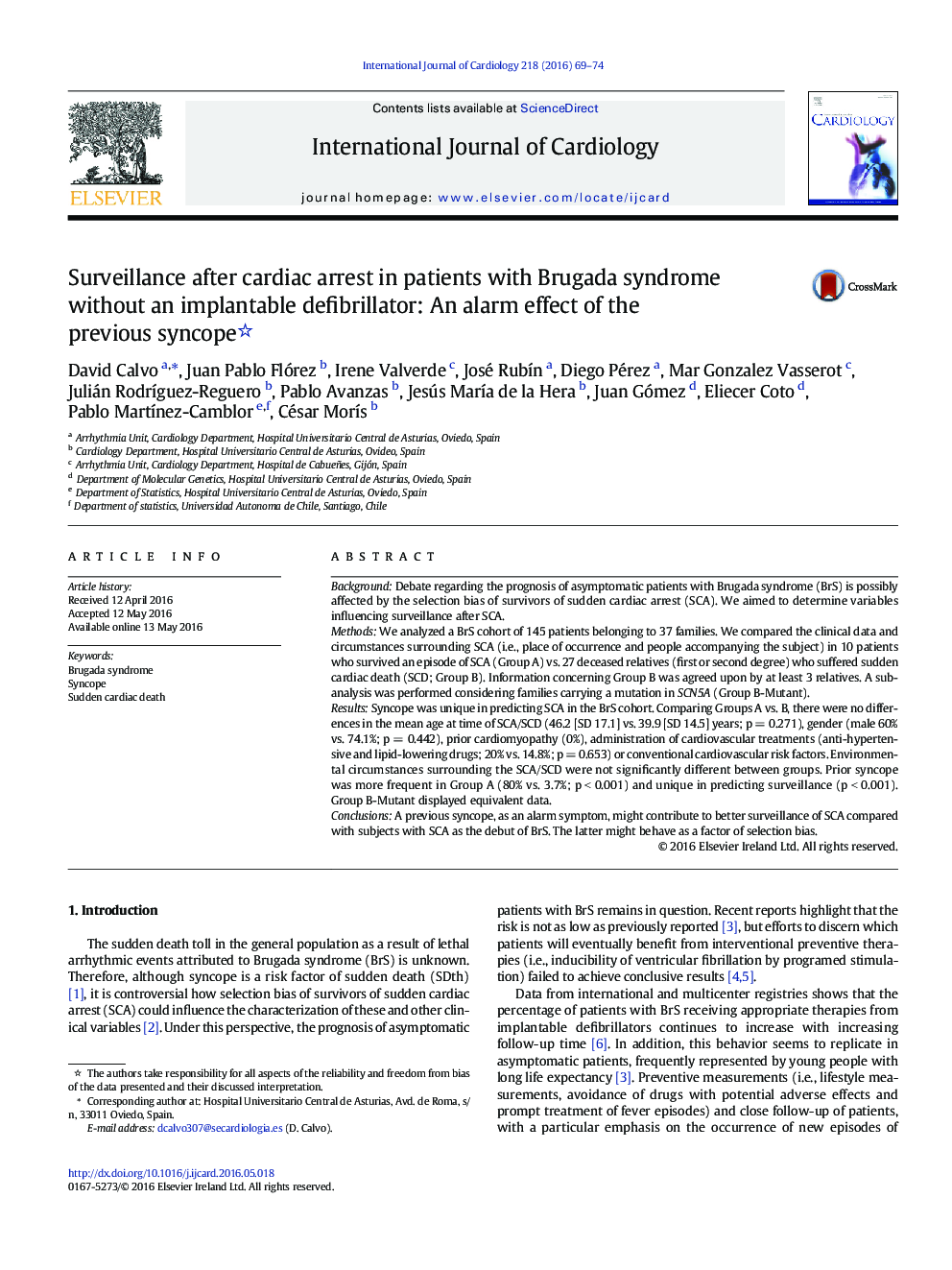| Article ID | Journal | Published Year | Pages | File Type |
|---|---|---|---|---|
| 5964116 | International Journal of Cardiology | 2016 | 6 Pages |
BackgroundDebate regarding the prognosis of asymptomatic patients with Brugada syndrome (BrS) is possibly affected by the selection bias of survivors of sudden cardiac arrest (SCA). We aimed to determine variables influencing surveillance after SCA.MethodsWe analyzed a BrS cohort of 145 patients belonging to 37 families. We compared the clinical data and circumstances surrounding SCA (i.e., place of occurrence and people accompanying the subject) in 10 patients who survived an episode of SCA (Group A) vs. 27 deceased relatives (first or second degree) who suffered sudden cardiac death (SCD; Group B). Information concerning Group B was agreed upon by at least 3 relatives. A sub-analysis was performed considering families carrying a mutation in SCN5A (Group B-Mutant).ResultsSyncope was unique in predicting SCA in the BrS cohort. Comparing Groups A vs. B, there were no differences in the mean age at time of SCA/SCD (46.2 [SD 17.1] vs. 39.9 [SD 14.5] years; p = 0.271), gender (male 60% vs. 74.1%; p = 0.442), prior cardiomyopathy (0%), administration of cardiovascular treatments (anti-hypertensive and lipid-lowering drugs; 20% vs. 14.8%; p = 0.653) or conventional cardiovascular risk factors. Environmental circumstances surrounding the SCA/SCD were not significantly different between groups. Prior syncope was more frequent in Group A (80% vs. 3.7%; p < 0.001) and unique in predicting surveillance (p < 0.001). Group B-Mutant displayed equivalent data.ConclusionsA previous syncope, as an alarm symptom, might contribute to better surveillance of SCA compared with subjects with SCA as the debut of BrS. The latter might behave as a factor of selection bias.
